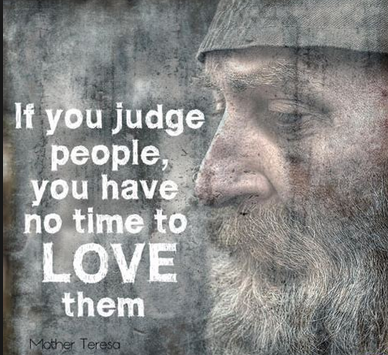What Does it Mean to Love One Another the Way Jesus Loved Us!
The best way to understand what Jesus meant is to look at the examples of how he loved others in the bible:
- He spent time with who religious people call “sinners” so that He could bring the love of God to them;
- He fed the multitudes with fish and bread, miraculously multiplying them to be able to feed them all;
- He did not condemn the woman allegedly caught in adultery, and in fact protected her from her accusers;
- He took off His robes, put on a towel and washed the disciples’ feet;
- He carried all our sins upon Himself and took the punishment for our wrongdoing;
- He released forgiveness for all people despite being hung on the cross, bloodied and weary from all the anguish;
- He showed Himself in peace to all believers after His death, and even ate with them;
- He gave us a command to make disciples, teaching all that He has taught us, and has promised to be with us as we do so.
Think about it. His love was unbiased, generous, and protective. Even as God, He was a servant to us. He took all the blame and pain that was for us, and despite that forgave and gave His peace to all of us. He gave our lives meaning and direction, and a constant assurance that we will never be alone as we fulfill our life’s purpose of loving Him and the people He loves.
Love Does Not Discriminate.
Think about it. His love was unbiased, generous, and protective. Even as God, He was a servant to us. He took all the blame and pain that was for us, and despite that forgave and gave His peace to all of us. He gave our lives meaning and direction, and a constant assurance that we will never be alone as we fulfill our life’s purpose of loving Him and the people He loves.
Love Does Not Require Prerequisites.
Jesus gravitated to the margins of society and spent significant time with those who were considered the fringe of culture. He did not center his attention on the most powerful, popular, or polished. Jesus did not place a standard on the kinds of people he would love and care for. In fact, if he did have bias, it was towards those who were ignored, discarded, or undervalued.
Love is Not Just Talk. It Must Be Tangible.
Talk was cheap to Jesus. He did not spend his time talking about how compassionate he was. Jesus embodied love in this world in a way that always considered the physical and spiritual needs of people.
Love is Compassion. It Calls Us to Slow Down, Stop, and Make Time for People.
No matter how busy Jesus was in his life, he always took time to stop in order to care for people. This is powerful. In a day and age in which busyness consumes us, we must never forget that we have to stop (or at least slow down) to take care of others.
Love is Sacrificial, It Causes Suffering.
Jesus gave his life so that many others could find hope in life. He said that true love and friendship is embodied in laying down one’s life for another. In addition, he described compassion as an act of “suffering with” others. In other words, caring for others deeply requires us to live along side them by bearing some of their pain and agony.
Love Must Be Transparent and Honest.
Jesus was transparent and honest in the way he dealt with people. This kind of straightforwardness was not rooted in an argumentative spirit or a distaste for people. He deeply cared about truth no matter how offensive it may have come across, especially with those that didn’t understand his heart. Jesus’ goal was not to win an argument. His focus was on bringing something that would be most beneficial to those he encountered.
Love Mandates Seeking Change For A Lasting Impact.
Jesus was clear that love and compassion needed to cause change. He spoke up regularly for those who didn’t have the stature to be heard. Jesus regularly recognized that many of the systems that man had created lacked care for those who most needed it. Compassion must lead to systemic change and the other way around.






